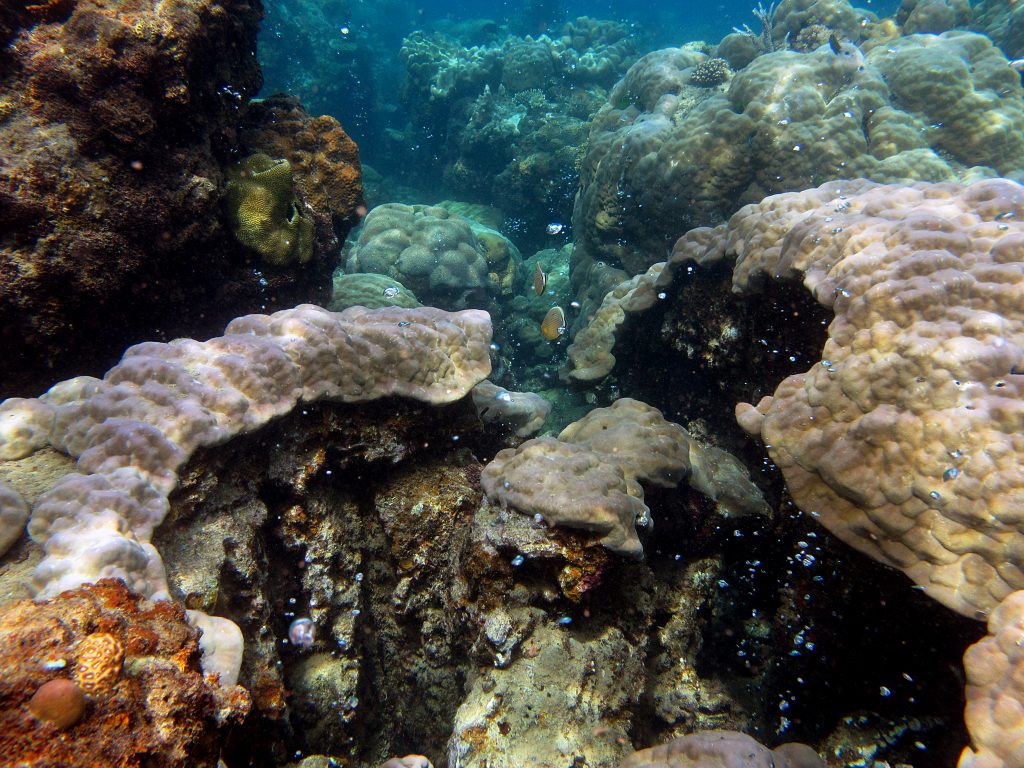Ocean Acidification
Ocean acidification reduces the availability of carbonate ions that are required by many organisms, such as corals and molluscs, to build skeletons and shells. For coral reefs, the most concerning implication of ocean acidification is its effects on coral growth, coralline algae, and rates of chemical erosion of reef substrate which also has significant impacts on dependent fish communities.

CO2 bubbling from the seafloor at a CO2 seep. Communities naturally living under acidic conditions provide unique perspectives into what coral reefs may look like in the future. Photo © Sam Noonan/Australian Institute of Marine Science
Currently, the best guidance for managing for ocean acidification involves prioritizing management towards protecting natural refugia and managing local stressors on reefs. Management strategies that protect these natural refugia from other stresses may help reefs cope with predicted changes in climate and ocean chemistry.
Management strategies to reduce the impacts of ocean acidification include:
- Design MPAs that consider OA
- Reduce threats that exacerbate ocean acidification conditions
- Explore and apply innovative interventions
- Reduce the effects of OA
